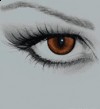More than a quarter century after her passing, Lillian Hellman remains controversial not just for her politics (decidedly leftist, if not unrepentant Stalinist) and her propensity for fabricating facts (see her several volumes of memoirs and the biographies that refute elements in them), but as a playwright, which is how she made her name with the debut of The Children’s Hour in 1934. Arguments about her public stances and private dealings may have stolen the spotlight, but the plays remain and, given how often they’re dismissed as melodrama, are surprisingly frequently revived, far more than the works of contemporaries typically viewed as finer artists.
And why not? Aren’t superior entertainments with meaty parts for actors worthy of the stage? What if, as is the case with 1939’s The Little Foxes, there’s more to the story, and there are richer characterizations, than a taut plot and its unalloyed heroes and villains suggest? Hellman’s personal strengths and weaknesses cannot belie the power of her writing. She may be decidedly second tier when compared with predecessors she seems to have drawn on — Ibsen, say, and Chekhov — but is the case quite as clear with successors on whom she plainly had an impact, like Williams and Miller? And does the game of literary hierarchy really matter with works which have repeatedly stood the test of time?
The Little Foxes is the terribly sad but wildly entertaining story of one of the worst families imaginable: the Hubbards, Southern capitalists of the most predatory sort who, in 1900, have cooked up a scheme to wring more money out of their failing cotton fields by partnering with a Chicago manufacturer to process the cotton right where it’s picked, because Southern laborers can be paid far less than Northerners. But each of the Hubbards — the powerful, mercenary Benjamin (Steven Turner), the weak, mercenary Oscar (A.D. Reed), and the indomitable, supremely mercenary Regina (Suzanne Tinsley) — is willing to sacrifice children, spouses and each other for financial advantage. They will cheat, steal, blackmail, even kill to get what they’re after. In the end, all that matters to the Hubbards is cash and power, and the capacity to wield them when conscience would cow almost anyone else.
Each of these roles, and those of Oscar’s abused, alcoholic wife Birdie (Kay Edwards); their oafish, self-serving son Leo (Josh Merrell); Regina’s put-upon, deathly ill husband Horace (Charles Mills); and Regina and Horace’s daughter Alexandra (Caroline Lathrop), who’s forced to grow up very, very quickly, have attracted stars and stars-in-the-making. (For example, Regina has been played by Tallulah Bankhead in the Broadway original, Bette Davis in the film, and Elizabeth Taylor in her late-in-the-day Broadway debut.) It simply isn’t possible for a community theatre to provide the sheer stage presence and scenery-chewing capabilities of such major figures, but it can do something equally interesting: bring human scale and believability to what might otherwise be too-broad strokes.
That’s exactly what happens in another of HART’s better efforts. Under the agile, intelligent direction of Wanda Taylor, Turner’s red-faced, laugh-filled Benjamin is a shockingly amiable swindler; Reed’s blowhard, half-witted Oscar is appropriately mean and pathetic; Tinsley brings false warmth and true steeliness to Regina so successfully the opening night audience cheerfully booed her during the curtain call; Edwards makes Birdie as moving and charming as she is foolish and doomed; Merrell brilliantly renders youthful stupidity; Mills effectively embodies Horace’s weakness, strength, dedication, and blindness to his wife’s true nature; and Lathrop gracefully allows us to see a sheltered young woman’s misplaced faith and forced awakening.
The smaller roles are also well played by William Marshall as the Chicagoan, Kathleen Cordon in an encouraging stage debut as the devoted maid Addie, and Josh Merrell as the addled hand Cal. Even the complex, period set by Lyle Baskin far exceeds what one might expect.
If mistakes have been made, they are few and minor: Cal, usually cast black, may be a touch too buffoonish in this white incarnation; and the most overtly political moment in the piece — a heart-wrenching anti-capitalist speech with far too great contemporary relevance — perhaps ought not to have been played so directly to the audience. These modest blemishes aside, HART brings us a Little Foxes that richly reveals what’s best in Hellman’s work.
The Little Foxes, by Lillian Hellman. Directed by Wanda Taylor. Set Design by Lyle Baskin. Lighting by Steven Lloyd. Stage Manager: Amanda Sims.
With Kathleen Cordon (Addie), John Winfield (Cal), Kay Edwards (Birdie Hubbard), A.D. Reed (Oscar Hubbard), Josh Merrell (Leo Hubbard), Suzanne Tinsley (Regina Giddens), William Marshall (Strother Stingley), Steven Turner (Benjamin Hubbard), Caroline Lathrop (Alexandra Giddens), and Charles Mills (Horace Giddens).
Shows on Friday, Nov. 12 and Saturday, Nov. 13 at 7:30 p.m. Sunday, Nov. 14 at 3 p.m. The Performing Arts Center Theatre, 250 Pigeon St., Waynesville. Adults $18, seniors $16, Students $8 ($5 student tickets for the Sunday matinee). http://harttheatre.com/wordpress and 828-456-6322.




Thanks for the great review.
A minor correction or two: John Wingfield (not Josh Merrell) plays Cal; and William Marshall is not the actor, but the character, played by Strother Stingley.
A. D. Reed